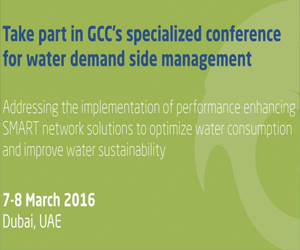Africa > North Africa > Waste
Waste in North Africa
-
Cleaning up the E-Waste Recycling Industry
EGYPT, 2016/01/08 Upon opening a shipment of computers it had received through the International Children's Fund (ICF), a Ghanaian school discovered the equipment sent was 15 years old. Most of the computers needed replacement parts, parts that weren't available anymore. In the end, the school managed to get only a single computer working again. While the ICF had good intentions, a fake charity had handed it a container of what was meant to be workable secondhand material that was actually closer to its end of life--that is, entirely waste. That unfortunate Ghanaian school is only one victim in a long chain of corruption, theft and organized crime that stretches from Brussels to Cape Town. -
Burning waste could provide Africa with 20% of its electricity needs But they have to keep those toxic by-products out of the atmosphere.
AFRICA, 2016/01/08 Producing electricity from urban solid waste could provide energy for up to 40 million African households in 2025, according to a study co-authored by the European Commission Joint Research Centre (JRC). In a statement published in Renewable and Sustainable Energy Reviews, JRC researchers determined the potential of recovering energy from trash by using landfill gas and waste incineration, and found that it could have provided additional than 20 % of the continent's total energy consumption in 2010. Where there are humans, there's trash, and an awful lot of it, too. Over the completed century, we somehow managed to increase our annual waste generation 10-fold, going from producing 110 million tonnes per year in 1900, to 1.1 billion tonnes in 2000. By 2025, household trash could all to a staggering 2.2 billion tonnes each year globally. -
Waste storage Only 5% treated, state seeking private partners
ALGERIA, 2013/04/28 Algeria has an abandoned treasure but lacks the ability to grasp it as data shows that a better organized waste storage would be worth 230 million euros a year. Out of the incredible amount of waste produced annually, only 5% is recycled and the national is seeking private investors in a sector which has few risks. -
Waste treatment and management results
EGYPT, 2013/03/29 The final event of the CIUDAD GEDUM project of European communities drew to a close on Thursday in Setif, Algeria. A large number of representatives from local communities across the region took part in the closing seminar, discussing the complex issues connected with integrated and sustainable management of solid urban waste in Maghreb nations.
- Trending Articles
-
- AUSTRALIA: Australia election: Over 15 million voters likely to exercise their franchise
- AFRICA: Ending Africa’s Culture of Impunity
- WORLD: Building a Global Action Platform to Create Abundant Food, Health, and Prosperity—While Saving the Planet’s Ecology
- BAHAMAS: Brand New Residences Bring Modern Luxury Living to Paradise Island Bahamas
- NIGERIA: Nigeria’s e-commerce industry shows growth potential
- KENYA: Kenyan Entrepreneur Cooks Up Successful Spices Business






